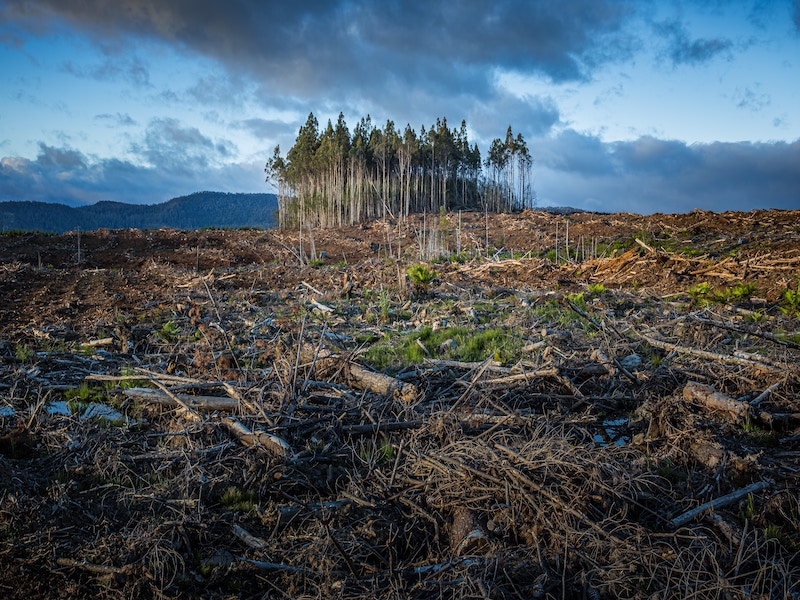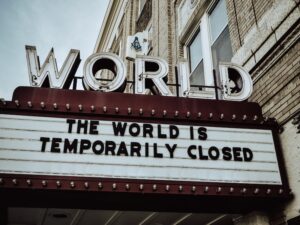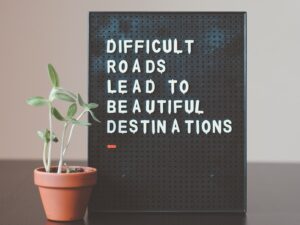Plenty of evidence suggests otherwise
“Ruin is the destination toward which all men rush, each pursuing his own best interest in a society that believes in the freedom of the commons.” So argues the ecologist Garrett Hardin in his renowned essay The Tragedy of the Commons. Hardin was of the belief that if ‘the commons’ (the commons being the natural world around us) isn’t managed by the state or owned by private interests, people will always make decisions that enhance their own position, leading to resources being overused, depleted, or polluted. The climate crisis is a prime example of Hardin’s tragedy. No one manages or owns the atmosphere, so everyone can pollute at will. While there is no consequence to the polluting company or individual, the collective impacts of global warming have created a tragedy of Shakespearean proportions.
The basis of his argument, and the foundations of conventional economic thinking, is that human nature revolves around two intrinsic qualities — greed and self-interest. Should this be the case, then the destruction of the environment is merely an outcome of human nature. If true, then we are well and truly doomed and have little hope of moving to a sustainable future. Lucky then that plenty of evidence suggests humans aren’t naturally selfish and greedy.
Game theorist Robert Axelrod has shown that the social structure determines the balance of behaviour in a society. When technologies, infrastructures, institutions and social norms reward self-serving greedy behaviour, that type of behaviour dominates. It should come as no surprise that greed and self-interest are the dominant characteristics exhibited in a market economy because these are the characteristics you must exhibit simply to survive. Within the context of a market system then, it’s little wonder Hardin’s tragedy plays out in reality.
But the political economist Elinor Ostrom’s groundbreaking work shows a tragedy is far from inevitable if the commons are left to open source. Ostrom received the Nobel Prize in economics in 2009 for her extensive research demonstrating how people can cooperate in creating rules and institutions that result in equitable and sustainable management of the commons. Here are three such examples Ostrom uses in Governing the Commons to demonstrate her point.
- Shared pastures in Törbel, Switzerland — where the boundaries of communal-owned lands were firmly established by 1507. Village statutes are voted on by all citizens and provide the general legal authority for an alp association to manage the alp.
- The villages of Hirano, Nagaike, and Yamanaka in Japan — extensive common lands have existed and have been regulated by local village institutions for centuries. Around twelve million hectares of forests and uncultivated mountain meadows were held and managed in common by thousands of rural villages between 1600 and 1867. Three million hectares of land continue to be managed in such a way today.
- The Huerta irrigation institutions in Spain — these institutions have existed since 1435. Its highly developed agriculture wouldn’t have been possible were it not for institutions governing the irregular rainfall the region receives each year.
A similarity between the examples is that they all “face uncertain and complex environments” but “in contrast to the uncertainty caused by these environments, the populations in these locations have remained stable over long periods of time. Individuals have shared a past and expect to share a future. It is important for individuals to share to maintain their reputations as reliable members of the community.”
A strong sense of interdependence and cooperation was founded based on an awareness that for all to thrive, each needs to make mutually beneficial decisions. Institutions developed because of the uncertainty caused by scarcity. The examples show that within pockets of humanity, the reality and awareness of environmental limits have led to the formation of norms, values and conventions that translate into behaviour that allows communities to flourish within those limits.
Ostrom’s work is enlightening as it proves that our behaviour is driven by context. These communities were socialised and taught that cooperation is mutually beneficial; the characteristics that are important to exhibit within that context are generosity and a collective spirit. In contrast, within a market economy, each person is socialised and taught that success hinges on being the richest; the characteristics that are exhibited within that context are to be self-serving, greedy and selfish, as these are the qualities that are most likely to lead to success. What appears ‘natural’ is a consequence of the desired behaviour we are taught in our socialisation. Change the construct, and humans will behave in very different ways.
The great irony interwoven in Hardin’s argument is that freedom of the commons may lead to ruin in some cases, but the exact same precedent is true when private interests have too much autonomy over how they manage those same resources. Take the Niger Delta in Nigeria which has suffered catastrophic environmental damage because oil companies see no need to reduce, limit or clean up the environmental impacts of their activities. The damage is fair enough, it seems, seeing as maximising profits is the name of the game, so any environmental consequences of oil extraction aren’t their problem.
How about the devastating impacts of industrial-scale bottom trawling? The practice involves raking the seabed with enormous nets that suck all life from the sea floor. Industrial trawler companies who benefit handsomely from the practice are all too happy to block efforts to ban bottom trawling by claiming their industry is sustainable due to certification schemes such as the one run by the Marine Stewardship Council. It’s unadulterated greenwashing at its most brash and distasteful, but it does the job of sustaining an industry that continues to wreak havoc on life in the oceans.
Beef production is arguably the worst of the lot. São Félix do Xingu, an area the size of Ireland, is a municipality of Brazil in the heart of the Amazon rainforest. The area is home to a herd of cattle millions strong. As you can imagine, dense rainforest isn’t conducive to rearing cattle. So not only is the region one of the world’s biggest beef producers, but it’s also known as the deforestation capital of the world. Forest fires are often started intentionally to clear-cut the rainforest. When trees are burned they release carbon dioxide they once stored into the atmosphere. That rainforest is then replaced by cows that release methane through flatulence. Not only that but clear-cutting rainforest replaces a thriving habitat with a grassland, destroying biodiversity. As a result of deforestation, the Amazon has been pushed beyond a tipping point. The rainforest now releases more carbon dioxide into the atmosphere than it absorbs. We have turned a precious ecosystem into a giant farm and a vital carbon sink into a carbon source, all to meet the demand for beef.
So back to our tragedy and the assumption that the destruction of nature is a product of human nature. It absolutely is the case that tragedies occur, if they didn’t we wouldn’t be facing a climate emergency and a host of other chronic environmental problems. But a tragedy is not a product of human nature but is an outcome of the norms, values and conventions that drive decision-making in a market where self-interest and maximising profits are king. If a tragedy were inevitable then efforts to move to a sustainable future would be pretty futile, wouldn’t they?
This gets to the heart of the challenges and opportunities of creating sustainable societies. A feature of each example Ostrom uses is that the communities faced uncertain and complex environments. That’s exactly the position we find ourselves in on a global scale. If the climate crisis is a symbol of nothing else, it’s the fact we are all connected, and all depend on one another to create thriving societies that operate within the limits set by nature. What’s required for humanity to thrive within those limits is a radical shift in values away from these seemingly ‘natural’ qualities of selfishness and greed, towards the values of cooperation and a sense of interdependence exhibited in the communities described by Ostrom.
The challenge in scaling cooperation and interdependence over self-serving selfish behaviour is that 55 percent of the world’s population — or 4.4 billion people — now live in cities. Urban living detaches us from the environment, making it hard to connect consumption with environmental impacts, let alone recognise the need to radically adapt behaviour to conform to those limits. But without a radical transformation of the norms and values that underpin our societies, greed and self-serving behaviour will continue to be lionised. And as long as they remain key to success, you can be confident that we’ll remain characters of an epic tragedy, the magnitude of which would put Shakespeare to shame.



